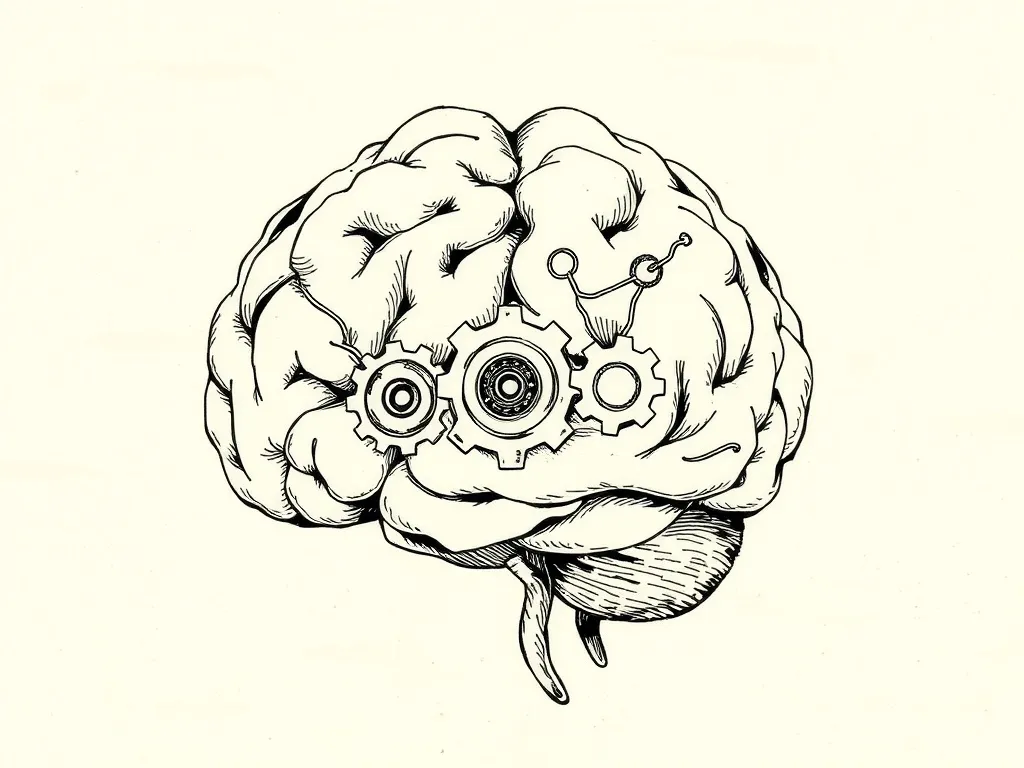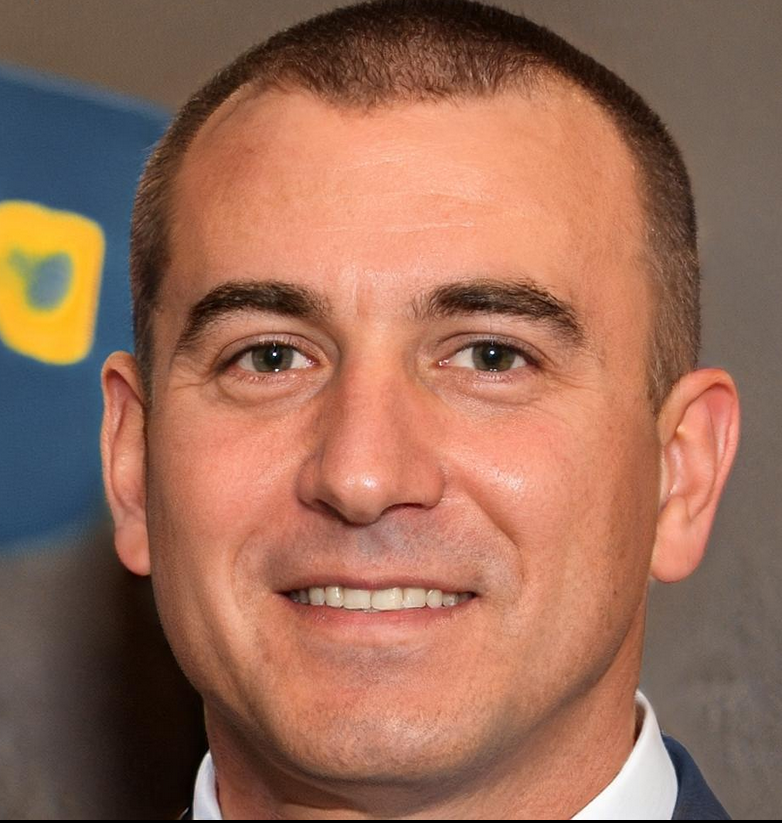· Don Schmidt · Guides · 10 min read
Optimizing Sleep for High-Achievers: CBT-I for Executives and Entrepreneurs in Calgary and Edmonton
Unlock peak performance with CBT-I! Learn how executives and entrepreneurs in Calgary and Edmonton can optimize sleep, manage stress, and conquer insomnia for lasting success.

The Relentless Pursuit: Why Sleep Matters for High-Achievers
In the fast-paced, high-stakes worlds of executive leadership and entrepreneurship, success is often equated with relentless drive, unwavering focus, and an almost superhuman capacity for work. Yet, beneath the veneer of constant productivity, a silent crisis often brews: chronic sleep deprivation. For high-achievers in dynamic cities like Calgary and Edmonton, the pressure to perform can lead to sacrificing the very foundation of sustained success – quality sleep. This article delves into why optimizing sleep isn’t a luxury but a strategic imperative for leaders and innovators, and how Cognitive Behavioral Therapy for Insomnia (CBT-I) offers a powerful, sustainable solution.
The High-Achiever’s Unique Sleep Challenges
The path of an executive or entrepreneur is rarely a smooth 9-to-5. It’s marked by long hours, high-pressure decisions, travel, and the constant mental load of responsibility. These unique demands create a fertile ground for sleep problems.
The Vicious Cycle of Stress and Sleeplessness
High-achievers often grapple with elevated stress levels. The constant pressure to meet targets, innovate, manage teams, and secure funding can lead to a mind that struggles to switch off. This mental agitation, combined with performance anxiety, often spills into the night, making it difficult to fall asleep or stay asleep. The fear of failure, the “what ifs,” and the endless to-do list can transform the bedroom into another boardroom for mental strategizing. Breaking the cycle of anxiety-fueled sleeplessness can be a significant step towards recovery, a challenge many professionals in Alberta face: Breaking the Cycle: Using CBT-I to Address Anxiety-Driven Insomnia in Alberta.
The Cost of Chronic Sleep Deprivation
While the immediate impact of a poor night’s sleep might feel like mere fatigue, the cumulative effect on high-achievers is far more profound. Chronic sleep deprivation erodes cognitive functions critical for executive performance:
- Impaired Decision-Making: Lack of sleep hampers complex problem-solving and risk assessment.
- Reduced Creativity & Innovation: The brain’s ability to make novel connections suffers without adequate rest.
- Decreased Focus & Concentration: Sustaining attention on demanding tasks becomes challenging.
- Emotional Volatility: Irritability, mood swings, and reduced resilience to stress become common.
- Health Risks: Long-term deprivation contributes to burnout, weakened immunity, and increased risk of chronic diseases.
For those whose livelihoods depend on sharp intellect and robust resilience, these costs are simply too high.
Unlocking Restful Success with CBT-I
Enter Cognitive Behavioral Therapy for Insomnia (CBT-I), a gold-standard, evidence-based treatment for chronic insomnia. Unlike sleeping pills that offer a temporary sedative effect, CBT-I addresses the root causes of sleeplessness by targeting the thoughts, feelings, and behaviors that interfere with sleep.
What is Cognitive Behavioral Therapy for Insomnia (CBT-I)?
CBT-I is a structured program that helps individuals identify and replace thoughts and behaviors that lead to poor sleep habits. It’s a non-pharmacological approach, meaning it doesn’t rely on medication. Instead, it equips you with practical skills and strategies to retrain your brain and body to sleep more effectively. Think of it as a comprehensive sleep education and re-calibration program.
Key Components of CBT-I
A typical CBT-I program involves several core strategies, often delivered by a trained therapist:
- Sleep Restriction Therapy (SRT): Counter-intuitively, this involves temporarily limiting the time spent in bed to condense sleep and build sleep drive. This helps your body relearn to associate your bed with sleep, not wakefulness.
- Stimulus Control Therapy (SCT): This component establishes a strong association between the bed and sleep. It involves strict rules like only using the bed for sleep (and intimacy), getting out of bed if awake for more than 20 minutes, and maintaining a consistent wake-up time.
- Cognitive Restructuring: This addresses the racing thoughts, worries, and misconceptions about sleep that often plague high-achievers. It involves identifying and challenging negative thought patterns (“I’ll never sleep,” “I need X hours or I’ll fail”) and replacing them with more realistic and helpful ones.
- Sleep Hygiene Education: While not a standalone solution for chronic insomnia, good sleep hygiene practices are essential. This includes optimizing your sleep environment (dark, cool, quiet), avoiding caffeine and alcohol before bed, and establishing a consistent pre-sleep routine.
- Relaxation Techniques: Learning techniques such as progressive muscle relaxation, diaphragmatic breathing, and mindfulness can help calm the mind and body before sleep.
Why CBT-I is the Executive’s Edge
CBT-I’s methodology aligns perfectly with the high-achiever’s desire for effective, data-driven solutions and long-term mastery.
Sustainable, Skill-Based Solutions
One of the most appealing aspects of CBT-I for executives and entrepreneurs is its focus on skill-building. Rather than a temporary fix, CBT-I provides a toolkit of strategies that you can apply independently throughout your life. It empowers you to become your own sleep expert, fostering a sense of control and self-efficacy – qualities highly valued in leadership roles. For entrepreneurs navigating intense schedules, a comprehensive guide to CBT-I specifically for entrepreneurs offers tailored strategies to manage sleep while building an empire: The Ultimate Guide to CBTI Sleep Therapy for Entrepreneurs.
Eliminating Medication Dependence
For high-achievers who value peak cognitive function and dislike reliance on external substances, CBT-I offers a compelling alternative to sleeping pills. It avoids the side effects, potential for dependence, and the “hangover” effect associated with many sleep medications, allowing for clear, uncompromised thinking the next day. Understanding the nuances of making an informed choice between CBT-I and medication for insomnia is crucial for long-term well-being and health: CBT-I vs. Sleeping Pills: An Alberta-Focused Guide to Making the Right Choice for Insomnia.
Direct Impact on Performance and Well-being
By systematically improving sleep quality, CBT-I directly enhances the very attributes high-achievers strive for:
- Sharpened Cognitive Function: Improved memory, focus, and analytical skills.
- Enhanced Emotional Resilience: Better mood regulation and reduced irritability.
- Increased Energy & Stamina: Sustained productivity throughout demanding days.
- Greater Innovation & Problem-Solving: The well-rested brain is a more creative and efficient brain.

Investing in CBT-I is, therefore, an investment in your personal and professional capital.
CBT-I in Calgary and Edmonton: Local Support for Alberta’s Leaders
The unique economic landscapes of Calgary and Edmonton, with their strong ties to energy, finance, technology, and public service, often place immense demands on their professional populations. Fortunately, accessing specialized sleep therapy like CBT-I is becoming increasingly viable within these cities.
Accessing Specialized Sleep Therapy in Alberta’s Major Cities
Both Calgary and Edmonton boast a growing number of psychologists, therapists, and specialized sleep clinics that offer CBT-I. Many practitioners provide both in-person and virtual sessions, offering flexibility for busy schedules. When seeking a practitioner, ensure they are trained and experienced specifically in CBT-I, as it requires a specialized skill set. A referral from your family doctor or a search through provincial psychological associations can be a good starting point.
Tailoring Treatment to the Local Business Environment
Qualified CBT-I practitioners in Calgary and Edmonton understand the specific pressures faced by local executives and entrepreneurs. They can help you adapt CBT-I strategies to account for frequent travel, international time zones, demanding client calls, and the inherent unpredictability of business. The therapy can be customized to fit your unique lifestyle, ensuring practical and sustainable results within your professional context.
Practical Steps for Optimizing Your Sleep Journey
While professional CBT-I is highly recommended for chronic insomnia, there are immediate steps high-achievers can take to begin optimizing their sleep:
Beyond Basic Sleep Hygiene
- Establish a Consistent Wake Time: Even on weekends, maintaining a regular wake-up time helps regulate your circadian rhythm.
- Create a “Decompression Zone”: Dedicate the last 60-90 minutes before bed to non-work activities. This could involve reading, a relaxing bath, or quiet conversation – anything that signals to your brain that it’s time to shift gears.
- Optimize Your Sleep Environment: Ensure your bedroom is dark, quiet, and cool (ideally 18-20°C). Consider blackout curtains, earplugs, or a white noise machine.
- Mindful Nutrition & Exercise: Be conscious of meal timing and composition. Regular exercise is beneficial, but avoid intense workouts close to bedtime. Limit caffeine intake after early afternoon and alcohol in the evening.
Mastering Your Mind for Restful Nights

- Implement a “Worry Time”: Designate 15-20 minutes earlier in the day to write down all your concerns, plans, and to-dos. This externalizes worries, preventing them from hijacking your sleep.
- Practice Mindfulness & Meditation: Even 5-10 minutes of daily mindfulness can train your brain to be less reactive to thoughts, making it easier to quiet your mind at night.
- Set Firm Boundaries: Learn to say “no” to late-night emails or calls. Protect your personal time as fiercely as you protect your business commitments.
When to Seek Professional Guidance
If you’ve consistently struggled with sleep for three months or more, and it’s impacting your daily functioning, it’s time to consider professional help. A qualified CBT-I therapist can conduct a thorough assessment, rule out underlying medical conditions, and guide you through a personalized program. Investing in your sleep health is an investment in your overall success and well-being.
The Path to Productive Rest
Sleep is not a weakness to be overcome but a physiological necessity that, when optimized, becomes a powerful tool. For executives and entrepreneurs in Calgary and Edmonton, mastering sleep with CBT-I isn’t just about feeling less tired; it’s about unlocking peak cognitive function, enhancing emotional resilience, and sustaining the drive needed to excel in demanding professional landscapes. Embrace sleep as your ultimate competitive advantage.
Frequently Asked Questions (FAQ)
Q1: Is CBT-I like regular therapy, sitting on a couch talking about feelings?
A1: While CBT-I is a form of therapy, it’s highly structured and problem-focused, specifically on sleep behaviors and thoughts. It’s less about open-ended discussion and more about learning and applying specific, evidence-based techniques to improve your sleep.
Q2: How long does CBT-I take to work?
A2: Many individuals begin to see improvements within 4-6 sessions, though a full course typically lasts 6-8 sessions. The duration can vary based on individual factors and the severity of insomnia, but it’s generally a short-term, intensive program designed for rapid results.
Q3: Can I do CBT-I myself using online resources or books?
A3: While there are excellent self-help books and online programs for CBT-I, working with a trained therapist is generally recommended, especially for chronic or severe insomnia. A therapist can provide personalized guidance, accountability, and adapt strategies to your unique challenges, which is particularly beneficial for high-achievers with complex lives.
Q4: Is CBT-I only for severe insomnia?
A4: No. While CBT-I is the most effective treatment for chronic insomnia, it can also benefit individuals with acute insomnia, irregular sleep patterns, or those seeking to optimize their sleep performance without medication.
Q5: What if I travel frequently for work and have irregular schedules?
A5: CBT-I strategies can be adapted for individuals with variable schedules, including frequent travelers or those dealing with jet lag. A CBT-I therapist can help you develop personalized strategies to manage time zone changes and maintain consistent sleep habits as much as possible, even with a demanding travel schedule.
Conclusion
The demanding roles of executives and entrepreneurs in Calgary and Edmonton necessitate not only unwavering dedication but also peak cognitive and physical performance. Prioritizing sleep is no longer optional; it’s a critical component of sustainable success. CBT-I offers a robust, evidence-based pathway to achieve this, empowering high-achievers to reclaim their nights and, in turn, revolutionize their days. Invest in your sleep, invest in your success.
Assess Your Sleep Quality Today
Take our My Sleep Health Score assessment to get personalized insights about your sleep patterns and discover how CBT-I can help you achieve better sleep.

Don Schmidt
15+ years of experience in sleep therapy and Cognitive Behavioral Therapy for Insomnia (CBT-I). Passionate about connecting individuals struggling with sleep disorders to evidence-based, non-medical treatment solutions. Author of hundreds of articles and comprehensive guides on sleep health, CBT-I techniques, and overcoming insomnia. When not helping clients achieve better sleep, you can find me hiking with my family and dogs or enjoying a good book.
Ready to connect with a provider?
Allow us to connect you with a provider who can help.



